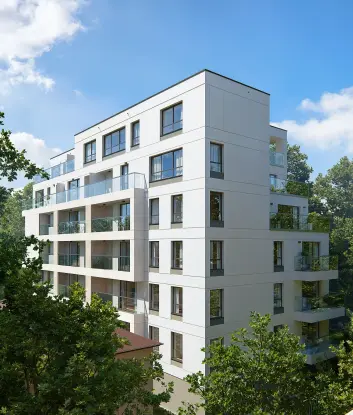Guide: ‘What to do in the event of a complaint?’

Receiving your apartment is not the end of the journey – sometimes defects are hidden under developer-installed systems or layers of plaster. A complaint is a procedure that allows you to demand defect removal under the conditions set by law and your contract. Below you will find a practical „what to do in case of a complaint” guide, describing each step, your deadlines and rights, and best practices for documenting and communicating with the developer or contractor.
Thorough inspection and documentation
- Immediately after handover, perform a detailed inspection (e.g., using a checklist).
- Photograph and film each defect you notice: describe the location, type of defect, and date (e.g., “23.07.2025 – crack in bathroom grout”).
Preparing the complaint protocol
- Fill out the developer’s complaint form or prepare your own protocol: property name, apartment number, defect descriptions, and expected repair method.
- Attach photographic documentation.
Complaint submission deadlines
- Statutory warranty: you have 2 years from handover to report physical defects (Article 556 of the Civil Code).
- Manufacturer/contractor warranty: deadlines may vary (usually 2–5 years), check the warranty card conditions.
- Apartment handover: if you report defects immediately in the handover protocol, the developer is obliged to fix them within the agreed period (usually 30–60 days).
Form and channels of submission
- Email: preferably as a PDF protocol with attachments; keep proof of sending and receipt.
- Client portal: if the developer has an online platform, upload documents there – you gain an automatic record of statuses.
- Registered letter: if there is no response or in case of a dispute, send the protocol by registered mail with acknowledgment of receipt.
Developer/contractor obligations
- Confirm receipt of the complaint within 7 working days.
- Fix the defects within the contractual deadline (usually 30–60 days from submission).
- Inform you about completion and enable re-inspection.
Your rights if defects are not fixed
- Additional discount or price reduction for persisting defects.
- Substitute performance: you can commission repairs to another contractor at the developer’s expense – after prior notice and an ineffective deadline.
- Withdrawal from the contract: in extreme cases, for significant defects and persistent refusal to repair.
Actions in case of refusal or delay
- Send a notice to fix defects with an additional deadline (minimum 14 days) and a warning about legal steps.
- Obtain an expert opinion from a construction surveyor – an independent opinion strengthens your position.
- Use a lawyer or mediation, and as a last resort, go to court for substitute performance or compensation.
Storing documentation
- Keep all emails, proofs of dispatch, protocols, and invoices.
- Archive all correspondence in one place – this facilitates potential evidence proceedings.
Regular inspections after repair
- After defects are fixed, arrange a second inspection of the apartment.
- Check if the defects were removed according to the complaint protocol.
Building a transparent relationship
- Maintain a factual and polite tone in correspondence.
- Clearly communicate your expectations and listen to the developer’s proposals – quick agreements often prevent conflict escalation.
Effective complaint handling is primarily about documentation, timely submission, and knowing your rights – statutory warranty, contractual warranty, and substitute performance options. Act step by step, keep evidence, and if you encounter resistance, seek an independent expert opinion and legal support. Good luck!
Read also
See all

Ivory on sale!
Find out more


